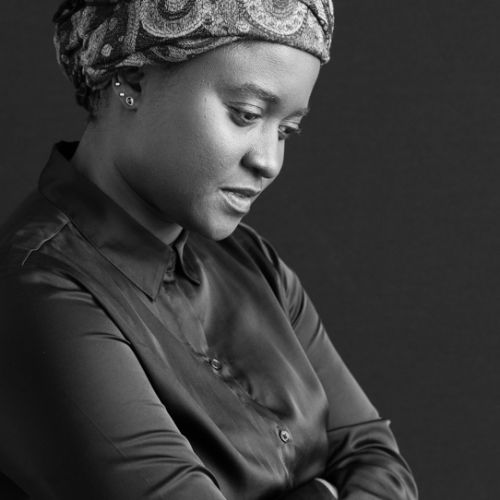
- Country: Botswana
- Poems: Commons, Black Bear in the Grocery Store, Variation on the Life of Roaches
Tjawangwa Dema
Bio
Tjawangwa Dema is author of The Careless Seamstress, winner of the Sillerman First Book Prize. Other collections include Mandible, a New-Generation African Poets chapbook and an/other pastoral, a Brittle Paper Notable African Book of 2022 and finalist for both the African Studies Association’s Aidoo-Snyder Prize and the Luschei Prize. Tjawangwa has given readings and facilitated workshops in over twenty countries, in places ranging from New Delhi to New York, Lagos to London, and Paris to Phnom Penh. In 2023 she addressed the United Nations Habitat Assembly. Recent book translations include Meuterin (Parasitenpresse, 2022) and A costureira descuidada (Editora Fosforo, 2023). An arts administrator, festival producer and educator, Tjawangwa has received fellowships, support and residencies from institutions including the University of Iowa’s International Writing Program, Northwestern University’s Alice Kaplan Institute for the Humanities and Arts Council England. Tjawangwa manages ArtsConsult Botswana and serves on international literary festival, editorial and adjudication committees/boards.
What are the ecological / social crises within your region / country?
There is little to say that has not been said before or said better. Despite forays into outer space and so on, for us, there is only one earth. One planet. As many others have said before, there is no Planet B. And it is from this vantage point that we must listen, learn and act whoever we are and wherever are because there is only at most the ‘width’ of a butterfly’s wing flap between us. We have the science, we have the stories, we know a small axe can bring down a big tree (metaphorically speaking) and so here we are. The climate crisis is a conversation that will require that all human beings bring their whole selves (whether adult, child, business person, artist and so on) as well as their cultural/geographical contexts to the table. I live a somewhat itinerant life but this moment finds me back in the country of my birth, Botswana. Botswana is very much in the Global South and even though the politics of elephant populations is a fraught landscape we can agree that Botswana is home to an extraordinary number of the world’s elephant population (and sometimes it feels like home to as many second hand cars shipped here from elsewhere). According to the World Meteorological Organisation ‘Africa is responsible for less than 10 percent of global greenhouse gas emissions. But it is the continent which is the least able to cope with the negative impacts of climate change.’ So that is some of the continental, regional and Botswana-specific context. Our currency, the Pula, means rain. We also have many, many names for different types of rain; unsurprising perhaps for a country that is 70% desert. The country, to my knowledge, is highly reliant on ground water, and there are continuing concerns around droughts and floods, both of which one can infer are linked to climate. Deserts aside, Botswana is home to the Okavango Delta which is a UNESCO World Heritage Site as well as a Ramsar site. One which is not only of interest to scholars and scientists invested in bio-diversity and thriving ecosystems, but to everyday people (not just in Botswana but regionally) who rely on the Okavango waters for their wellbeing and livelihood; these ecosystems are transnational. This is home, on occasion a little too hot for comfort but home nonetheless, and I would very much prefer to leave it better than I found it. I leave others to speak to possible effects of tourism or farming on the local level and others to speak to hunting bans, animal-human conflict as well as the histories of extractive economies and the contemporary outsourcing of environmental precarity to places like Botswana across the Global South. My form is the poem; what little I have to say I say there.